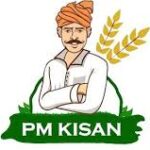
In today’s digital age, fake news and misinformation have become rampant, infiltrating our screens and shaping public opinion. But fear not – the power to combat this spread lies in media literacy. Join us as we delve into the crucial role of media literacy unesco in deciphering truth from fiction and equipping ourselves with the tools to navigate a world saturated with misleading information. Let’s empower ourselves to be savvy consumers of news and stand against the tide of fake news together!
The impact of fake news and misinformation on individuals and society
The rise of fake news and misinformation has become a major concern in today’s society. With the increasing use of social media and online platforms, it has become easier for false information to spread quickly and reach a large audience. This phenomenon not only affects individuals by influencing their beliefs and decisions but also has a significant impact on society as a whole.
UNESCO’s role in promoting media literacy
UNESCO (United Nations Educational, Scientific and Cultural Organization) has been at the forefront of promoting media literacy as a crucial tool in combating fake news and misinformation. As a specialized agency of the United Nations, UNESCO is dedicated to fostering international cooperation in education, science, and culture. One of their key areas of focus is promoting media and information literacy (MIL) as an essential skill for individuals to navigate the increasingly complex media landscape.
Practical tips for improving media literacy skills
Media literacy skills are essential in today’s digital age where we are bombarded with information from various sources. With the rise of fake news and misinformation, it is crucial to equip ourselves with the necessary skills to critically evaluate and analyze media messages. Here are some practical tips that can help improve your media literacy skills:
- Understand the motive behind the message: Before believing or sharing any information, it is important to understand why it was created and what purpose it serves. Ask yourself, who benefits from this message? Is there a hidden agenda? This will help you determine if the information is biased or misleading.
- Verify the source: It is easy for anyone to create and share content online without any fact-checking or verification process. Therefore, always check the credibility of the source before trusting or sharing any information. Look for reputable sources such as established news organizations, government agencies, or academic institutions.
- Cross-check information: In addition to verifying the source, cross-checking information with multiple sources can also help in determining its accuracy. If a piece of news is only reported by one source, it may not be reliable.
- Be aware of your own biases: We all have our own biases that can influence how we perceive and interpret information. Make an effort to recognize your biases and try to view things objectively.
- Check for evidence: Reliable information should be backed up by evidence such as statistics, data, or expert opinions. If there is no supporting evidence provided in a particular piece of news or article, question its validity.
- Pay attention to language and tone: The way a message is conveyed can also reveal its legitimacy. Misleading messages often use sensational language and emotional appeals rather than facts and logical arguments.
Conclusion: The Importance of Media Literacy in Combating Fake News and Misinformation
In today’s digital age, the spread of false information has become a major problem. With the rise of social media and the ease of sharing information, it has become increasingly difficult to distinguish between what is true and what is not. This is where media literacy plays a crucial role in combating fake news and misinformation.
Media literacy refers to the ability to access, analyze, evaluate, and produce media messages. It encompasses critical thinking skills that enable individuals to understand how media works and its impact on society. In the context of fake news and misinformation, media literacy can help individuals identify false information and make informed decisions about what they consume and share.





